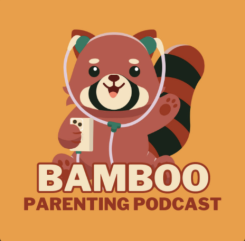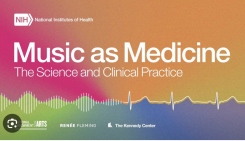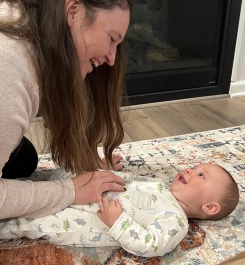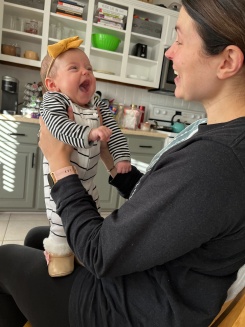Bamboo Parenting Podcast: Early Infant Communication and Signs of Autism
https://open.spotify.com/episode/5PnNo6WRKWJkWwQU9AEBpw?si=566dd675be4b45a2
A parenting podcast series focusing on navigating self care, parenting and relationships. Join co-hosts, PhD Researcher, Kaila, and Psychologist, Leah, as they interview experts and educators about their work and parenting journeys to share simple strategies to make you and your family happier.
Beethoven’s genes reveal low predisposition for beat synchronization
Craig Boerner
https://news.vumc.org/2024/03/26/beethovens-genes-reveal-low-predisposition-for-beat-synchronization/
Ludwig van Beethoven, one of the most celebrated musicians in human history, has a rather low genetic predisposition for beat synchronization, according to a Current Biology study co-authored by Vanderbilt University Medical Center (VUMC) and the Max Planck Institutes for Empirical Aesthetics in Frankfurt am Main, Germany, and for Psycholinguistics in Nijmegen, the Netherlands.
Music as Medicine: December NIH Workshop Featured Ongoing Work of Our Lab
Kelly Corcoran, MPH
https://mailchi.mp/vumc/musichealthjanuary2024
The work of the Vanderbilt Music Cognition Lab was featured many times during the "Music as Medicine" workshop, sponsored by the National Institutes of Health (NIH) and the National Endowment for the Arts (NEA) and jointly organized by NIH, the NEA, the Renée Fleming Foundation, and the John F. Kennedy Center for the Performing Arts, which took place December 14–15, 2023. The event aimed to highlight accomplishments from the last 6 years in advancing scientific research on music and health, develop a blueprint for the next phase of research, and further build the research community.
Get Face-to-Face With Your Infant for Language Development
Camila Alviar, PhD and Miriam Lense, PhD
https://www.psychologytoday.com/us/blog/music-development-and-well-being/202309/get-face-to-face-with-your-infant-for-language
How Rhythm and Song Support Infant Social Development
Miriam Lense, PhD
https://www.psychologytoday.com/us/blog/music-development-and-well-being/202303/how-rhythm-and-song-support-infant-social-development
Music and singing are some of the most common forms of social interaction and play during early childhood. Caregivers all over the world sing to their infants to engage or soothe them. Seemingly simple acts, like singing to and engaging in musical games with young children, can profoundly impact children, caregivers, and their relationship with each other.
New Research: Singing to Your Baby Helps Their Speech and Language Development
Abby Barnes, M.S., CCC-SLP
https://www.expressable.com/learning-center/babies-and-toddlers/new-research-how-singing-to-your-baby-helps-their-speech-and-language
It’s a special feeling to hold your baby and look at them as they look back at you. You and your baby might do this as you rock in a rocking chair, make silly faces, or sing a nursery rhyme.
Study finds sensitivity to musical rhythm supports social development in infants
Craig Boerner
https://news.vumc.org/2022/11/03/study-finds-sensitivity-to-musical-rhythm-supports-social-development-in-infants/
Engaging infants with a song provides a readymade means for supporting social development and interaction, according to a study published in the Proceedings of the National Academy of Sciences.
Researchers at Vanderbilt University Medical Center, Marcus Autism Center, Children’s Healthcare of Atlanta, and Emory University School of Medicine enrolled 112 infants who were either 2 months or 6 months old.
2022 VKC Science Day Poster Competition winners announced
https://vkc.vumc.org/news/4060
Several Music Cognition Lab trainees presented at the 2022 VKC Science Day!
Postdoctoral fellows Camila Alviar, PhD, and Noah Fram, PhD, were highlighted in the Data Blitz and Poster Awards for their outstanding research.
We Got the Beat
23andMe
https://blog.23andme.com/23andme-research/we-got-the-beat/
There might be something to the saying, “you’ve got the music in you.”
A new genetic study in the journal Nature Human Behavior led by researchers at Vanderbilt University and 23andMe found more than 60 regions of the genome associated with beat synchronization, the ability to move in time with the beat of music.






